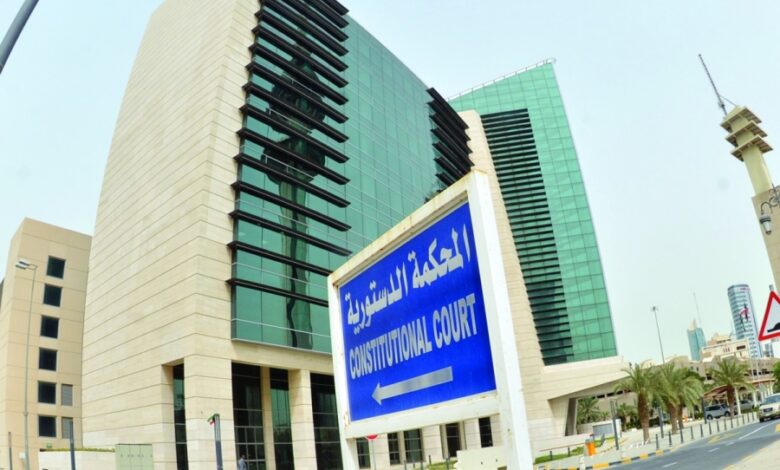Constitutional Court upholds legality of Ministers’ Court procedures
Affirms rule of law — rejects appeals, upholds justice, and reinforces balance between legislative authority and constitutional rights

In a landmark series of rulings, the Advisory Chamber of the Constitutional Court in Kuwait has upheld the constitutionality of key legal provisions, addressing high-profile challenges related to the trial of ministers, protection of public funds, event licensing regulations, and tax decree instructions.
The Advisory Chamber firmly rejected a constitutional appeal challenging Article (3) of Law No. 88 of 1995 regarding the Court for Ministers. A Kuwaiti citizen had claimed that the law violated Article (167) of the Constitution, which assigns the responsibility of public prosecution to the Public Prosecution, reports Al-Rai Arabic daily.
The appellant contested the legality of forming an investigative committee comprising three Kuwaiti appellate court advisors, arguing that such a formation undermines the role of the Public Prosecution in initiating public lawsuits on behalf of society.
According to case details, the appellant cited personal harm, stating that the committee, on May 8, 2024, ordered the seizure of all his movable, real estate, and cash assets, despite him not being formally investigated or charged in Case No. 2 of 2024.
However, the court maintained that Article 132 of the Constitution empowers the legislature to define crimes committed by ministers and the procedures for their prosecution. Law No. 88 of 1995, in response to that mandate, assigned such cases to a special court of five advisors and authorized a separate investigative committee — ensuring both constitutional alignment and due process.
The court further clarified that a Public Prosecutor, not below the rank of Chief Prosecutor, must attend all investigative sessions and has the authority to submit relevant requests — affirming that the Public Prosecution’s role remains intact. The text, it said, is “clear and distinct, without ambiguity or vagueness.”
In another ruling, the Constitutional Court dismissed a separate appeal against Paragraph 2 of Article (14) of Law No. (1) of 1993 regarding the protection of public funds. The law holds public employees accountable if, through a serious error, they cause major financial harm to public interests.
The appellant argued the clause lacked clarity, violating the principle of legality in crime and punishment under Article (30) of the Constitution. He also challenged Article (20) of the same law for creating an unjust distinction between perpetrators of intentional crimes and those who erred unintentionally, limiting judicial leniency.
The court rejected these arguments, emphasizing that Article (14) clearly outlines the concept of serious error and allows judges to assess its severity based on the case facts. As for Article (20), the court ruled the appellant lacked a direct, personal stake, as a final judgment had already been issued against him — rendering the appeal moot. The court also dismissed his challenge to Article (21 bis), which relates to statutes of limitations, reaffirming that appeals must involve direct, practical interest.
The court also dismissed a company’s appeal against Ministerial Decision No. 227 of 2024, which grants exclusive licenses to authorized firms to organize large national events.
The appellant argued the decision undermines equality. However, the court affirmed that the regulation is based on a general, abstract rule and does not breach the principle of equal opportunity. It emphasized that any challenge concerning the legality of the ministerial decision should be addressed by the administrative judiciary, not the Constitutional Court.
In a final ruling, the Constitutional Court rejected an appeal against Clause (First/B) of Executive Rule No. 28 of the Kuwaiti Income Tax Decree. The regulation stipulates that subcontractor expenses must not exceed the revenues they generate to qualify as deductible.
The appellant contended this violated the tax decree and underlying law. However, the court clarified that its role is limited to overseeing the alignment of laws and regulations with the Constitution.












